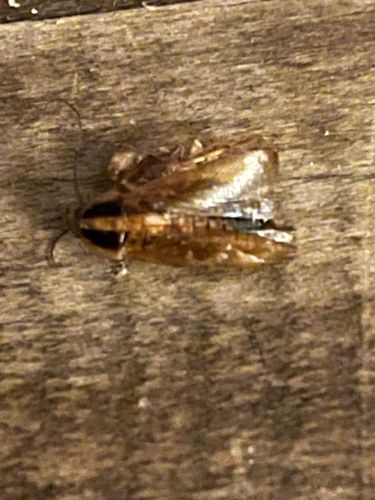German Cockroach
Scientific Name: Blattella germanica
Order & Family: Blattodea (Order), Ectobiidae (Family)
Size: 1.1 to 1.6 cm (0.43 to 0.63 inches) in length

Natural Habitat
Indoors, especially in kitchens and bathrooms, preferring warm, humid environments close to food and water sources. They are often found in cracks, crevices, behind appliances, and inside cabinets.
Diet & Feeding
Omnivorous scavengers. They eat almost anything, including food scraps, grease, pet food, toothpaste, soap, glue, and even other cockroaches. They prefer starches, sugars, and fatty foods.
Behavior Patterns
Nocturnal, active at night. They are very prolific breeders, producing many generations per year. They are known for their rapid dispersal and ability to infest new areas quickly. They often carry oothecae (egg cases) partially extruded from their abdomen until just before hatching.
Risks & Benefits
Potential risks include spreading pathogens (bacteria, viruses, fungi) that can cause food poisoning, dysentery, allergies, and asthma. They can contaminate food and surfaces with their feces and shed skins. They produce allergens that can trigger allergic reactions in sensitive individuals. There are no known benefits associated with their presence in human dwellings.
Identified on: 9/24/2025